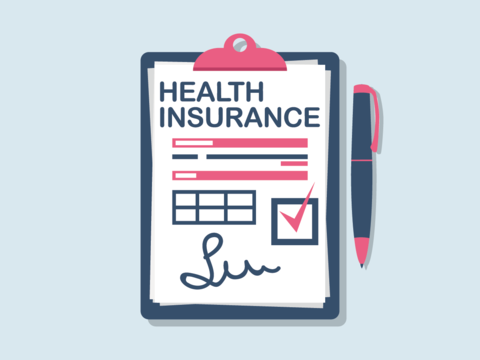Insurance policies are based on the principle to compensate for financial loss that you might suffer. Although it is a future uncertain event, having the backup of an insurance policy helps to mitigate such financial hardships that otherwise might burn a hole in your wallet. An insurance policy helps to lower the impact of such financial blow due to unpredictable events by providing compensation.
What is an insurance claim?
An insurance claim is the compensation which the insurance company pays on happening of a future uncertain event for which coverage is sought. Various general insurance plans are available that insure against varying contingencies like health ailments, motor accidents, property damage and more. With a general insurance claim for these events, the insurance company helps make good for any such financial loss.
When you make an insurance claim, there are specific processes that need to be followed. These processes are laid down so that all the claims can be processed smoothly by the insurer whilst verifying them at the same time. This article elaborates on how the claims are settled for the motor and health insurance policies in India.
Claims for Motor insurance policies
Motor insurance policies include car as well as bike insurance policies. It is the only type of insurance that is a regulatory requirement as per the Motor Vehicles Act. Here are some ways how the claims need to be filed. But before that you need to know there are two types of motor insurance policies, third-party and comprehensive plans.
A third-party claim occurs when a person outside the contract of insurance, i.e. a third person is injured. Here you need to inform the insurance company at first followed by registering an FIR (First Information Report) with the police authorities of the governing jurisdiction. This claim is settled by the Motor Accidents Tribunal which then passes a judgement on the compensation that needs to be paid. Based on this amount, the insurance company compensates you, the policyholder based on the applicable limits to your third-party policy.
Comprehensive policies are those where damages to your vehicle is also included under its coverage alongside third-party cover. For such own damage insurance claim, you need to approach the insurance company reporting of such damage. If your bike or car insurance policy is a cashless one, the insurer will require you to repair such damages at an authorised network garage failing which cashless benefits shall not be awarded. For reimbursement policy, you can repair your vehicle and present all necessary invoices to the insurer. On assessing whether the repairs are under the policy limits, the pay-out is made by the insurance company.
Claims for Health insurance policies
Health insurance claims are again classified into cashless and reimbursement policies. Depending on the type of your policy, you need to inform your insurance company of the treatment sought and the medical facility. For planned hospitalisation, a pre-approval needs to be obtained whereas in emergency cases, the intimation can be provided later. Once the treatment is complete, cashless claims are directly settled by the insurance company with the medical facility. Only the differential amount not covered by the policy needs to be paid from your pocket. For reimbursement claims, the treatment bills need to be presented to the insurer which will be examined for its adequacy and then a pay-out shall be made.
This is how claims are settled based on the type of policy for health and motor insurance. While the process may be more or less similar across different insurers, make a note of the exact process of your insurance company for detailed understanding of the process. Insurance is the subject matter of solicitation. For more details on benefits, exclusions, limitations, terms and conditions, please read sales brochure/policy wording carefully before concluding a sale.

